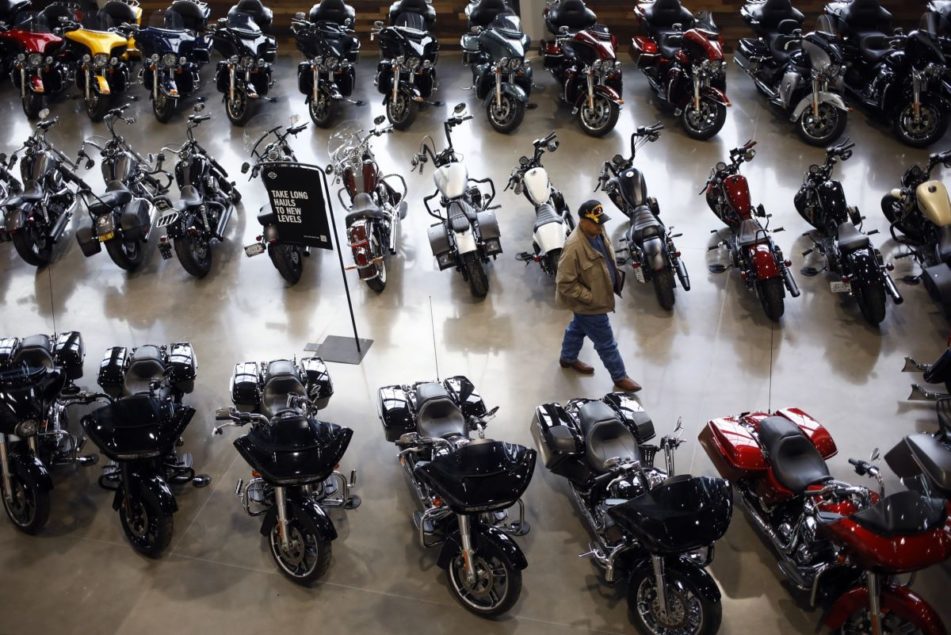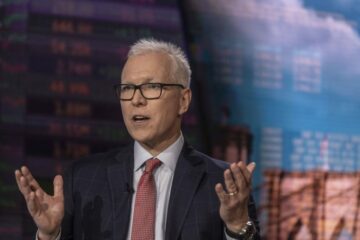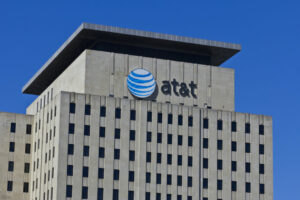
Makers of refrigerators, boats and teeth straighteners say U.S. consumers are shunning big-ticket items, defying the macro-economic reports on spending.
Shoppers think long and hard before buying a motorized vehicle or washing machine, and they are increasingly reconsidering them. That’s a bad sign for a U.S. economy that has been kept afloat — and out of recession — by the willingness of Americans to keep spending despite high inflation and interest rates.
Take Whirlpool Corp., the maker of Maytag appliances. The company said consumers continue to replace machines that break, but spending on new ones for renovations or new homes — what the company dubs discretionary purchases — has been weaker than expected, chief executive officer Marc Bitzer said Thursday on a call with analysts.
The softening demand, which includes customers trading down to cheaper models, has sparked discounting across the industry. Now promotions are back to pre-pandemic levels after waning the past three years because COVID-19 upended supply chains and limited production.
“Being back to a pre-Covid promotional environment is not surprising,” Bitzer said. “However, we expected this to occur one or two quarters later.”
Getting orthodontics is also a highly considered purchase because it costs thousands of dollars and takes months to complete. Joe Hogan, CEO of Align Technology Inc. told analysts October 26 that demand for its Invisalign brand of teeth straighteners was lower than expected. Americans continue to spend on dental work for their children, but are pushing off teeth straightening for themselves, according to the company. Hogan blamed a “more difficult macro environment than we experienced” in the first half of the year.
The softness in big-ticket items can also be seen at pharmaceutical companies. At Abbvie Inc., sales of Botox missed estimates last quarter and other facial treatments, such as fillers, declined.
For Harley-Davidson Inc., higher borrowing rates hurt sales of motorcycles, which tumbled 15% in North America. The company has rolled out generous new incentives to stimulate demand, but even then, sales were weak in the third quarter, according to dealerships and research from UBS Group AG.
‘Been a Challenge’
“It is clear that the macroeconomic backdrop has been a challenge,” CEO Jochen Zeitz said on October 26, during a call with analysts. Inflationary pressures and high interest rates are making it harder for consumers to afford its vehicles, he said.
What these companies are saying counters economic data that continues to paint a rosy picture of the consumer economy. Also on October 26, the U.S. reported that gross domestic product rose 4.9% in the third quarter, the biggest advance in nearly two years. That growth was fueled by a 4% jump in personal spending, highlighted by big gains in car parts, luggage and sporting goods.
The results prompted Jefferies U.S. economist Thomas Simons to say in a note that U.S. consumers “went nuts” in the third quarter, which runs through September.
One explanation for the divergence is that Americans are souring on the future. Polls show waning confidence in the economy. There’s also the threat of a government shutdown and a wider war in the Middle East. Plus, nearly three years of surging price increases, including one inflation reading hitting a four-month high on October 27, may finally be taking a bigger toll on their propensity to spend.
That looks to be the case in boating, another high-consideration sector. Marine Products Corp., which makes Robalo boats, reported a 22% drop in revenue last quarter. Brunswick Corp. had a 16% decline in its boat segment. And revenue at Polaris Inc., maker of a wide range of snowmobiles, motorcycles and pontoon boats, fell 4% last quarter.
“Even though the talk of recession had come down, it’s kind of bounced up just a little bit,” Polaris CEO Michael Speetzen said on an earnings call. “We do think consumers are going to continue to have a cautious mindset given everything that’s going on.”
- SEO Powered Content & PR Distribution. Get Amplified Today.
- PlatoData.Network Vertical Generative Ai. Empower Yourself. Access Here.
- PlatoAiStream. Web3 Intelligence. Knowledge Amplified. Access Here.
- PlatoESG. Carbon, CleanTech, Energy, Environment, Solar, Waste Management. Access Here.
- PlatoHealth. Biotech and Clinical Trials Intelligence. Access Here.
- Source: https://www.supplychainbrain.com/articles/38392-slump-in-big-purchases-clashes-with-governments-strong-consumer-data
- :has
- :is
- :not
- $UP
- 15%
- 26
- 27
- a
- According
- across
- advance
- After
- AG
- align
- also
- america
- Americans
- an
- Analysts
- and
- Another
- appliances
- ARE
- AS
- At
- back
- backdrop
- Bad
- BE
- because
- been
- before
- Big
- bigger
- Biggest
- Bit
- Bloomberg
- boat
- Borrowing
- brand
- Break
- but
- Buying
- by
- call
- CAN
- car
- case
- cautious
- ceo
- chains
- challenge
- cheaper
- chief
- Chief Executive
- chief executive officer
- Children
- clear
- come
- Companies
- company
- complete
- confidence
- considered
- consumer
- consumer data
- Consumers
- continue
- continues
- Corp
- Costs
- counters
- COVID-19
- Customers
- data
- Decline
- defying
- Demand
- Despite
- difficult
- discounting
- discretionary
- Divergence
- do
- dollars
- Domestic
- down
- Drop
- during
- Earnings
- earnings call
- East
- Economic
- Economist
- economy
- Environment
- Even
- everything
- executive
- Executive Officer
- expected
- explanation
- facial
- Finally
- First
- For
- For Consumers
- from
- fueled
- future
- Gains
- generous
- given
- going
- goods
- Government
- gross
- Group
- Growth
- had
- Half
- Hard
- harder
- Have
- he
- High
- High inflation
- higher
- Highlighted
- highly
- hitting
- Homes
- HTTPS
- in
- Inc.
- Incentives
- includes
- Including
- Increases
- increasingly
- industry
- inflation
- Inflationary
- Inflationary pressures
- interest
- Interest Rates
- Invisalign
- IT
- items
- ITS
- joe
- jpg
- jump
- just
- Keep
- kept
- Kind
- Last
- later
- levels
- Limited
- little
- Long
- LOOKS
- lower
- machine
- Machines
- Macro
- macro environment
- Macroeconomic
- maker
- MAKES
- Making
- Marine
- May..
- Michael
- Middle
- Middle East
- Mindset
- models
- months
- motorcycles
- nearly
- New
- North
- north america
- note
- now
- occur
- october
- of
- off
- Officer
- on
- ONE
- ones
- or
- Other
- out
- paint
- parts
- past
- personal
- Pharmaceutical
- picture
- plato
- Plato Data Intelligence
- PlatoData
- plus
- polls
- pre-COVID
- price
- Product
- Production
- Products
- promotional
- Promotions
- purchase
- purchases
- Pushing
- Quarter
- range
- Rates
- Reading
- recession
- replace
- Reported
- Reports
- research
- Results
- revenue
- Rolled
- ROSE
- Rosy
- runs
- s
- Said
- sales
- say
- saying
- sector
- seen
- segment
- September
- show
- shutdown
- sign
- Slump
- sparked
- spend
- Spending
- strong
- such
- supply
- Supply chains
- surging
- surprising
- takes
- taking
- Talk
- Technology
- than
- that
- The
- The Future
- their
- Them
- themselves
- then
- These
- they
- think
- Third
- this
- though?
- thousands
- threat
- three
- Through
- thursday
- to
- told
- Trading
- treatments
- two
- u.s.
- U.S. economy
- ubs
- vehicle
- Vehicles
- war
- was
- washing
- we
- were
- What
- which
- whirlpool
- wide
- Wide range
- wider
- Willingness
- with
- Work
- year
- years
- zephyrnet












